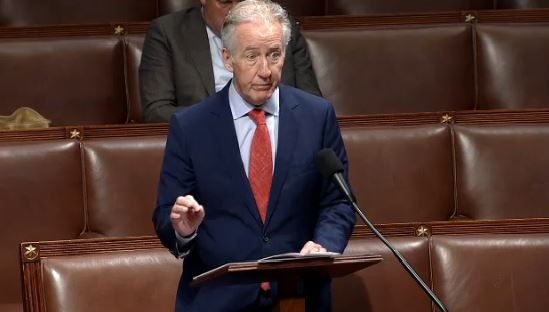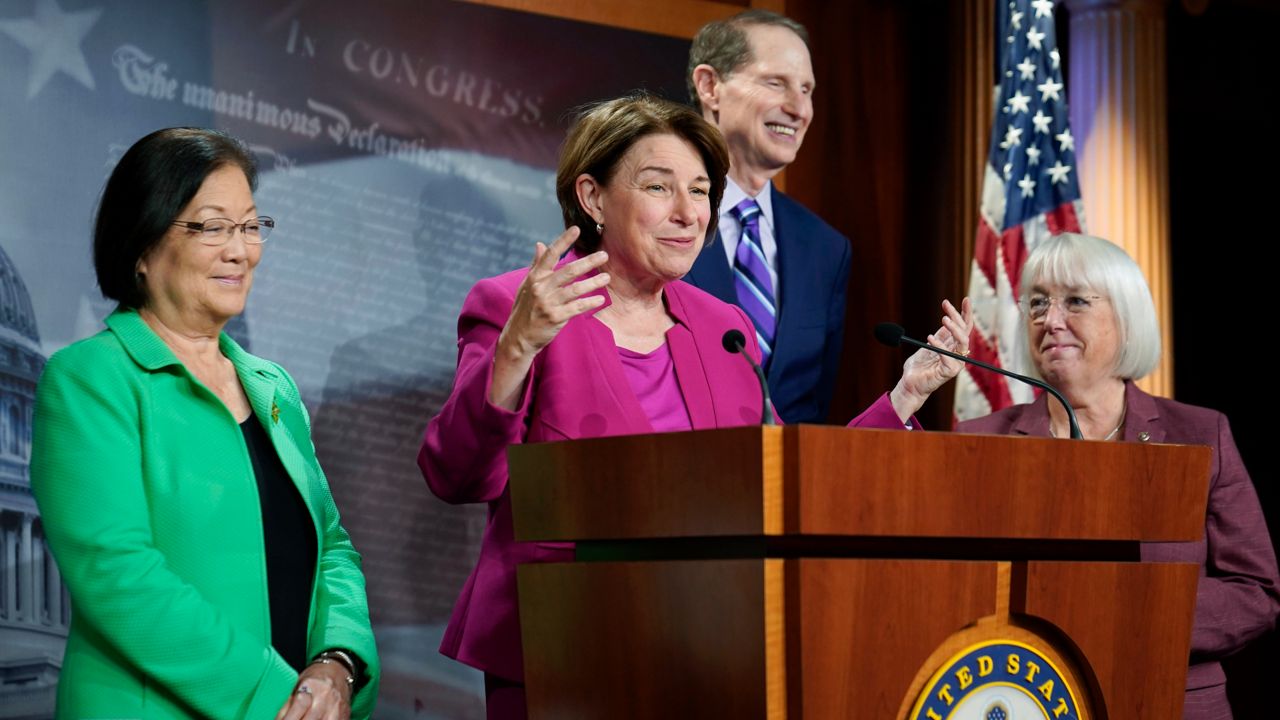Lawmakers say the deal would strengthen our economic partnership with Taiwan and would be beneficial to both countries.
At a House Ways and Means Committee hearing on the future of U.S. and Taiwan trade, Rep. Richard Neal, D-Mass., spoke about the importance of establishing a formal trade deal with Taiwan. The Democrat from Massachusetts is also the committee’s chairman and said the process starts in Congress.
“Congress has been given the exclusive authority to regulate foreign commerce by the Constitution,” Neal said at the hearing.
The U.S. and Taiwan have maintained a mutually beneficial economic partnership over the years but until this point, the two nations have operated without a formal trade agreement.
Lawmakers and witnesses at last week’s hearing said pursuing an official deal with Taiwan was vital to America's economy. Taiwan is among America’s top 10 trading partners. In the 2021 fiscal year, the U.S. exported over $3.9 billion worth of agricultural products alone to Taiwan from several states. Taiwan is America’s sixth largest agricultural export market and leading those exports were soybeans, beef, wheat, poultry and fresh fruit.
“We have soybeans, we have fresh fruit, things like that. I'm sure the state of Florida benefits from some of the fresh fruit that's exported there and, of course, California as well and we grow a little bit in Texas as well,” said Russell Boening, the President of Texas Farm Bureau.
Other witnesses to testify at the hearing pointed to the benefits a deal could have on America's tech sector.
“It's really about re-aligning supply chains in Asia, it's about ensuring that this alliance for which Taiwan is a critical part, not just because of semiconductors, but because of other parts of the electronics supply chain,” said Mark Wu, a Professor of Law for the Fairbanks Center for Chinese studies at Harvard University.
Testimony from Bonnie Glaser, the Director of the Asia program at the German Marshall Fund of the U.S., proposed another benefit of the deal. She argued that an agreement would fulfill America's commitment to supporting democracy abroad and preserving stability in the Indo-Pacific.
“Taiwan is at the frontline of this rivalry, as Beijing intensifies political, military and economic coercion against it as part of a broader strategy to subvert the island's democracy and compel reunification. The United States should aid Taiwan's efforts to defend its people, its democracy and its freedoms. A U.S. Taiwan [bilateral trade agreement] would serve that goal,” Glaser told the committee.
While pursuing a U.S.-Taiwan trade deal has support from both sides of the aisle, one concern expressed by some committee members is whether a trade deal might provoke Chinese aggression and undermine America's one China policy that recognizes China's claim to Taiwan but also says its rule cannot be enforced through violence.










